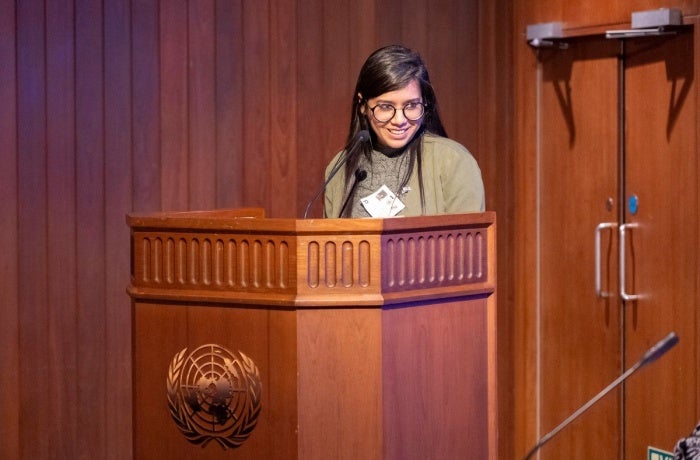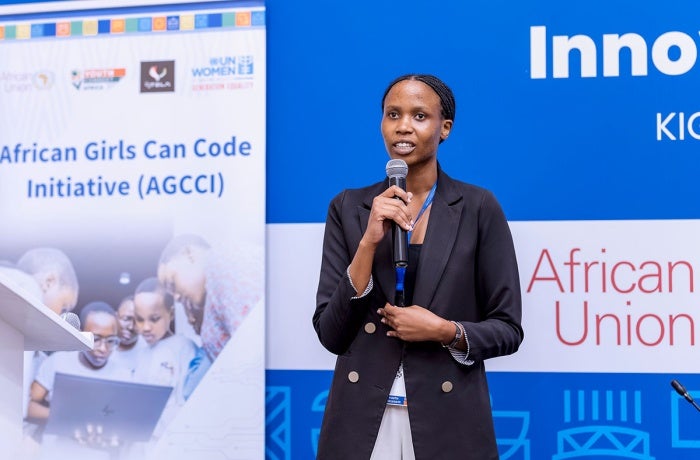Shaping the agenda: Youth engagement and empowerment at the 68th session of the Commission on the Status of Women
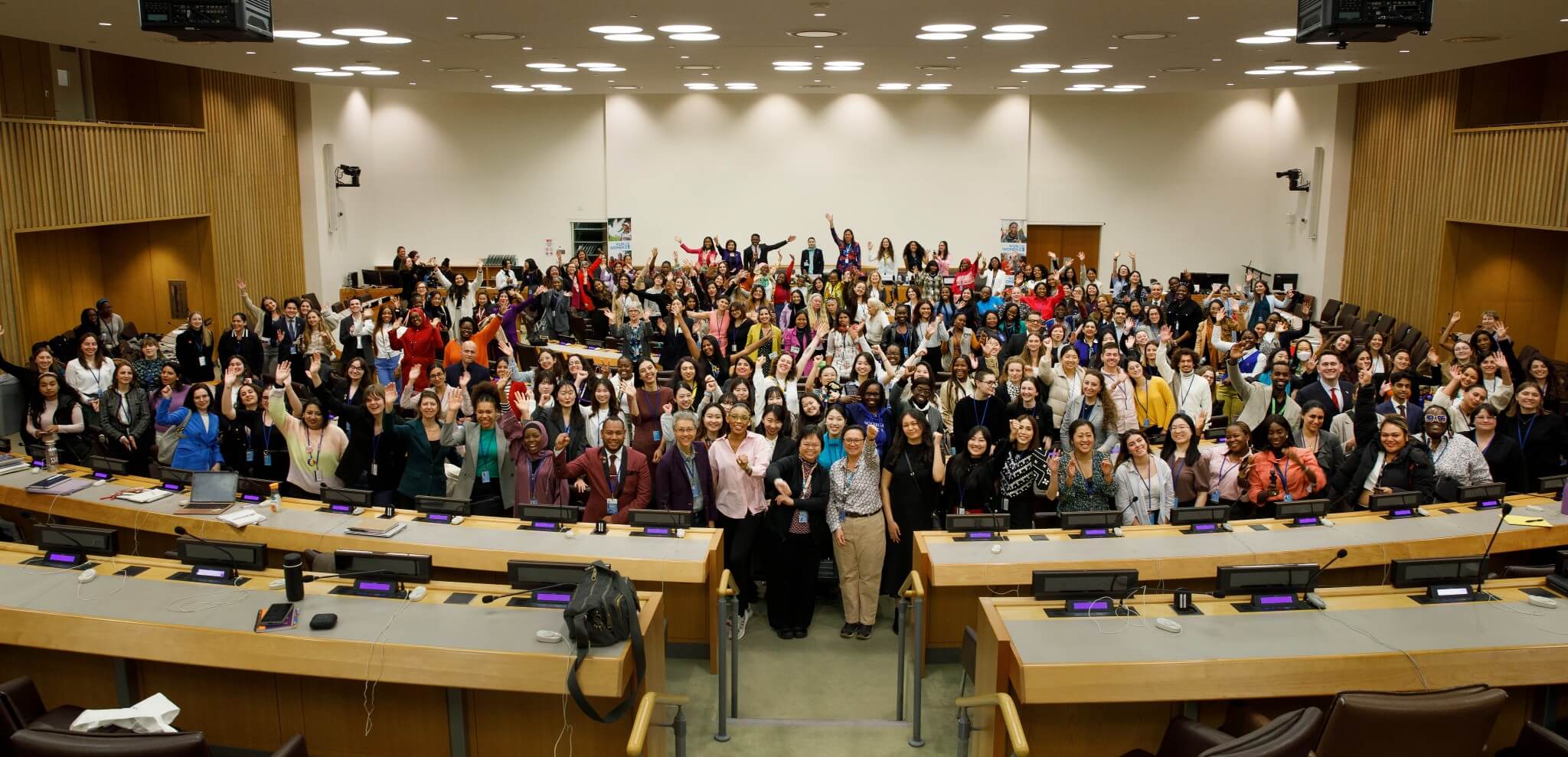
After an invigorating three-day assembly, the CSW68 Youth Forum, held on 15–17 March 2024, closed with renewed commitments and actionable insights. Aligned with this year’s Commission on the Status of Women priority theme, “Accelerating the achievement of gender equality and the empowerment of all women and girls by addressing poverty and strengthening institutions and financing with a gender perspective”, the Forum stood as a beacon for young voices ready to echo through the halls of global decision-making.
Meaningful engagement and diverse voices
The Youth Forum brought together a vibrant mosaic of more than 400 young leaders from across the globe, ranging from activists to experts with a rich diversity of experiences, including adolescents, young people with disabilities, indigenous youth, LGBTIQ+ youth, and more, adding depth to the dialogue on poverty eradication and galvanizing efforts to push forward for gender equality.
“It is high time that we stop thinking about you as the leaders of tomorrow and start working with you as the leaders of today”, said UN Women Executive Director Sima Bahous.
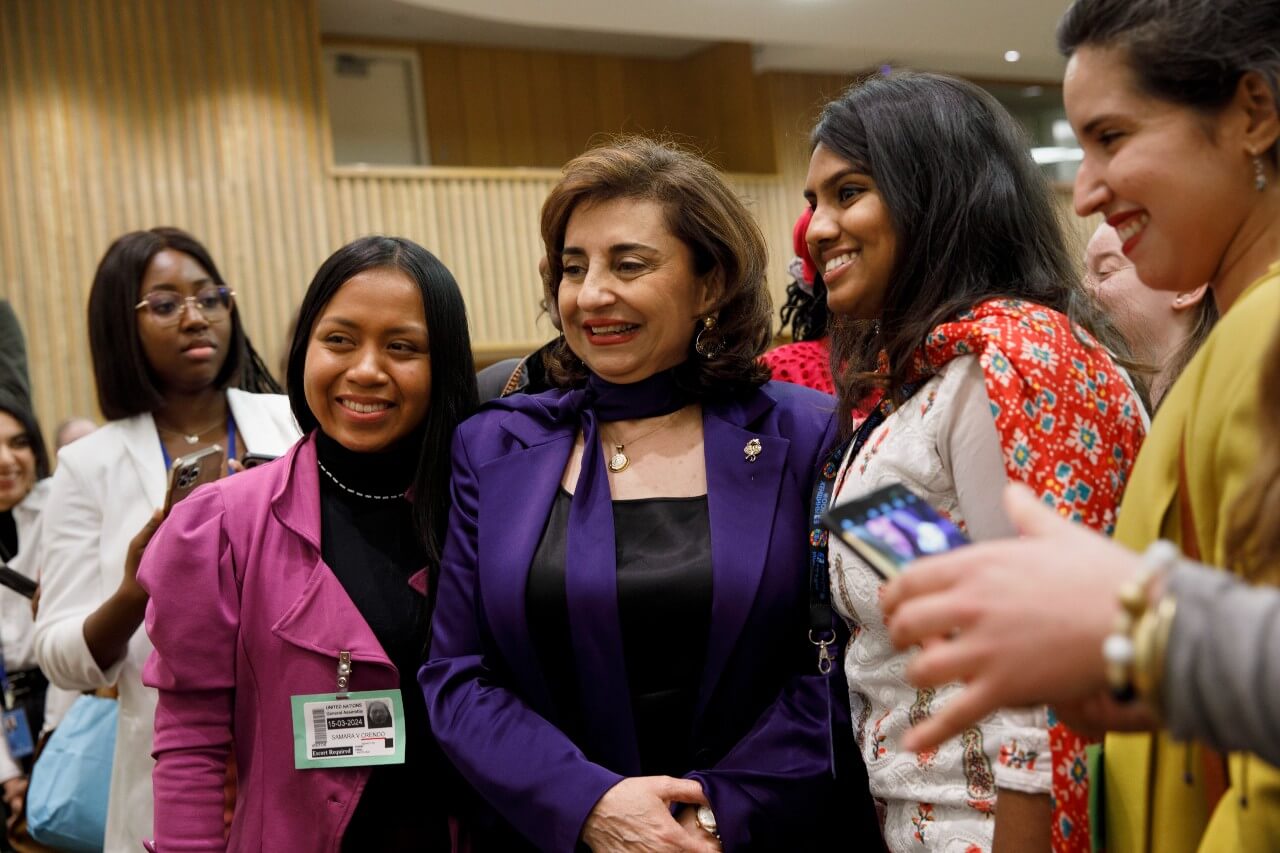
The energy and commitment demonstrated by these young leaders set a forward-looking trajectory towards pivotal moments in 2024 and 2025, including the upcoming UN Civil Society Conference in Nairobi in May, the Summit of the Future in September, and the landmark Beijing+30 review and appraisal in 2025.
The Youth Forum reaffirmed the power and potential of young leaders in shaping the agenda for gender equality. As participants return to their communities, they carry with them the charge to advocate for change, equipped with new insights and reinforced by a global network of peers.
A platform for change and dialogue
“Change rarely happens in an instant”, said Justice Faith, Co-Founder of Révolutionnaire and moderator of the Youth Forum opening on 15 March. “It grows steadily through the courage, resilience, and moral conviction of everyday people committed to bending the arc toward justice. That’s what this gathering represents—a community of believers undeterred by setbacks, propelled by hope, and united by the undeniable rightness of our cause: gender equality and the empowerment of women.”
The Forum was not just a space for conversations, but a ground for laying out concrete plans to tackle the intertwined issues of gender inequality and poverty. Through interactive sessions, panels, and innovation labs, participants dissected the socio-economic crises affecting women and girls, pledging to strengthen accountability mechanisms and to articulate demands for transformative change.
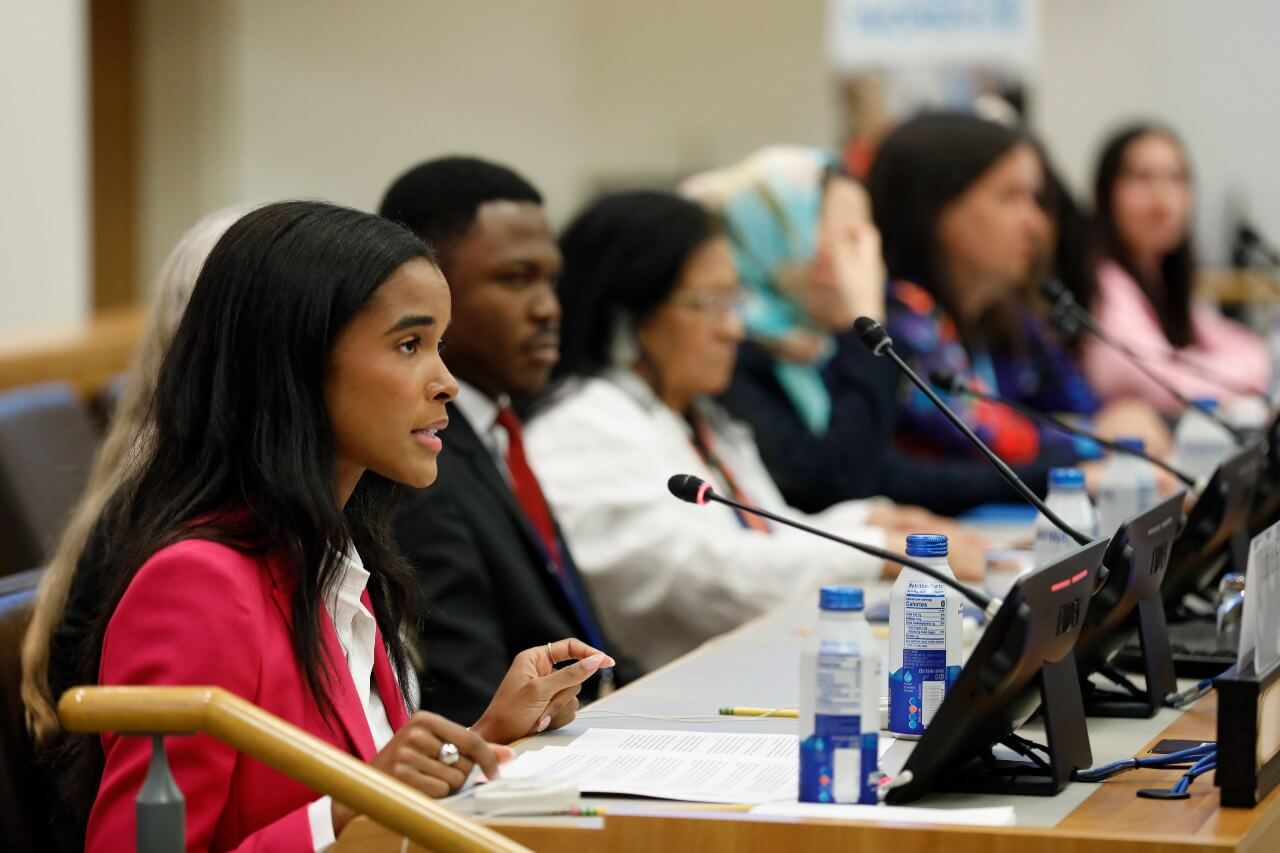
Ljubica Fuentes, feminist lawyer and executive director of Ciudadanas del Mundo, Ecuador, emphasized the critical challenges still faced today: “Women and LGBTIQ+ people are still facing harassment, discrimination, rape, and death in classrooms at all levels. Feminist education is the only way for quality education.”
One of the Forum’s core achievements was its ability to forge new pathways for dialogue between young advocates and established policymakers. These direct dialogues aimed at narrowing the gap between aspiration and action, with a special focus on engaging a diverse group of participants.
Shaping our shared future
The forum’s finale was a powerful endorsement of the “CSW68 global youth and adolescent recommendations”. This pivotal set of recommendations highlights the determination of youth and adolescents to cast a gender lens into poverty reduction efforts.
Felipe Paullier, Assistant Secretary-General for Youth Affairs at the United Nations Youth Office, shared his vision for the Summit of the Future, with a view to strengthening youth participation in decision-making bodies: “The Pact for the Future should activate steps towards granting formal status and a stronger mandate to the ECOSOC Youth Forum. This should also happen with the General Assembly, its subsidiary bodies, the Human Rights Council, and the Security Council.”
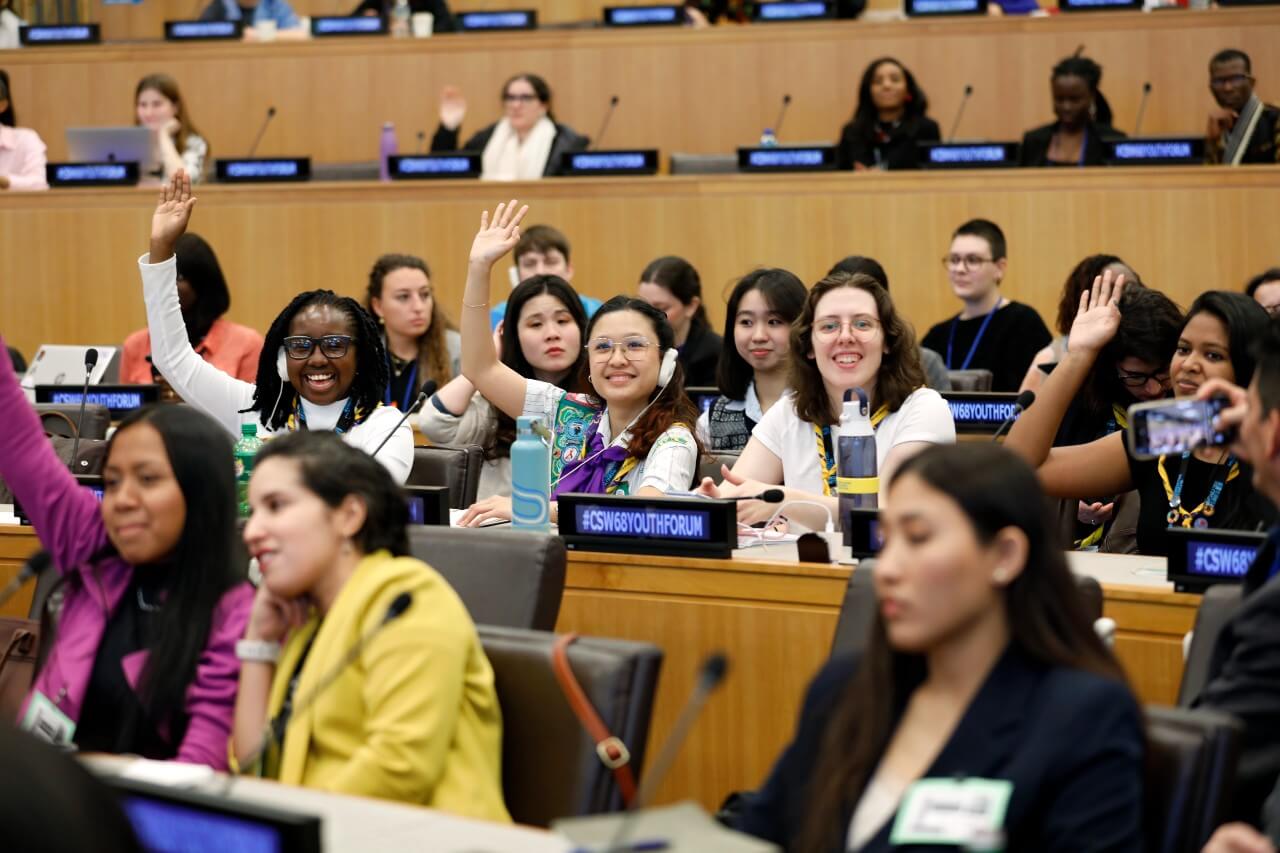
The CSW68 Youth Forum was a testament to the power of youth-led advocacy in driving gender equality forward. It underscored the critical role of young people in shaping a just and equitable future, highlighting their capacity not as mere participants but as architects of change.







